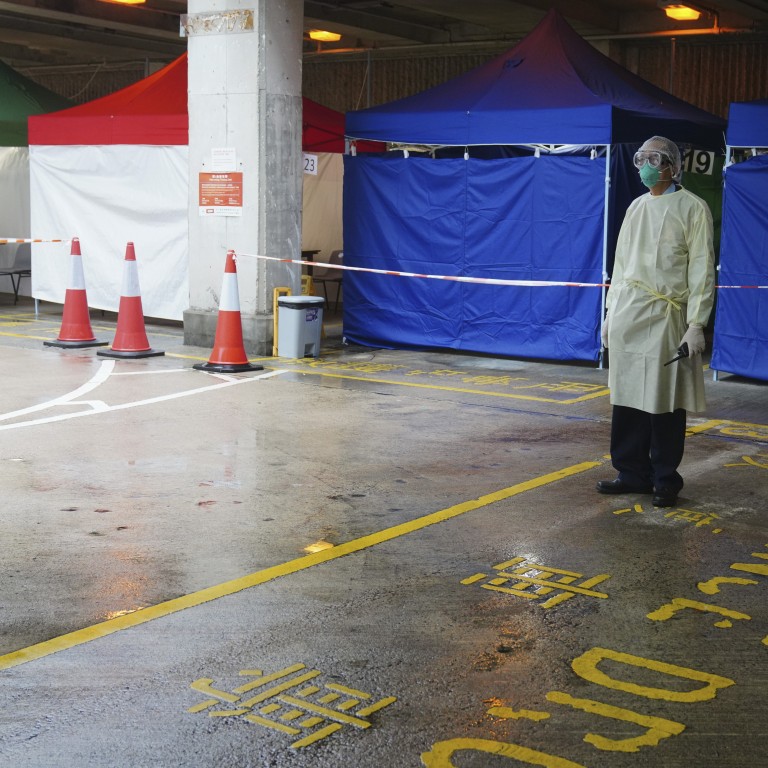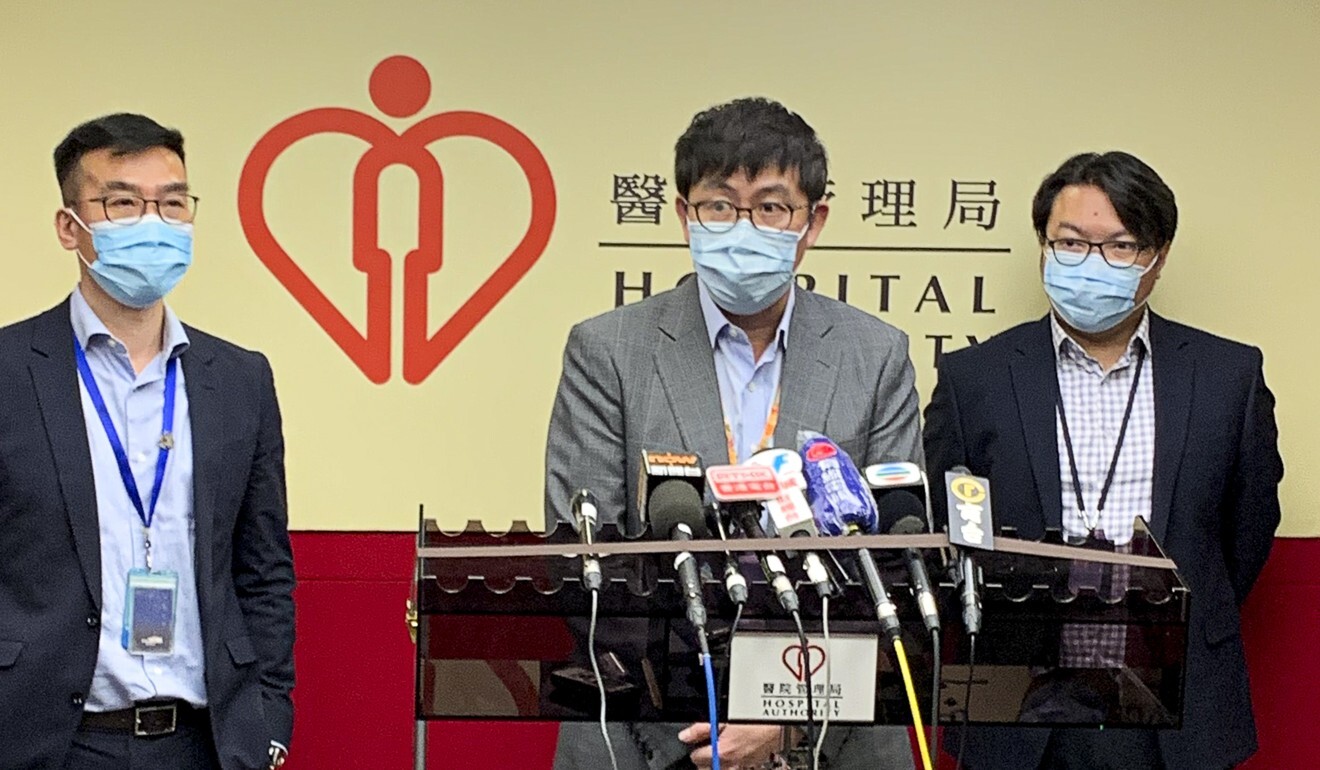
Hong Kong hospitals begin screening all new inpatients for Covid-19, with ‘high-volume’ machines expected to boost testing capacity
- The Hospital Authority is implementing the measure in hopes of curbing a potential fourth wave of infections in the winter months
- The new automated testing machines, once procured, could double testing capacity to as much as 9,000 tests a day
Hong Kong’s public hospitals began screening all new inpatients for Covid-19 on Wednesday, as officials planned to double the current testing capacity with new “high-volume” automatic machines to guard against a potential fourth wave of infections in the winter.
Hospital chiefs said the city had the ability to scale up testing as daily infections in the current wave had come down – with just six new cases reported on Wednesday – and revealed that talks were ongoing with the care sector to explore testing for elderly patients before they were discharged back into care institutions to minimise risks of transmission.
“This is very important as a fourth wave can be even more severe than the third wave,” Dr Chung Kin-lai, the Hospital Authority’s director for quality and safety said at a press briefing on Wednesday. “How to protect the elderly, this will be the most important plank in our future strategy against the epidemic.”

Chung said between 800 and 900 inpatients deemed to be high-risk or vulnerable, such as those from aged or disability care homes and those in psychiatric wards, were already being screened for the coronavirus upon admission every day. Starting from Wednesday, all new intakes in hospitals across seven clusters, an average of some 2,000 patients a day, will be tested in a bid to further clamp down on Covid-19 transmissions.
Dr Raymond Lai Wai-man, the authority’s chief infection control officer, said that between July 20 and September 3, 83 Covid-19 cases had been detected through the programme, representing 0.24 per cent rate of those tested upon admission. The patients were seeking treatment in various unrelated areas, including internal medicine, accidents and emergency, oncology, orthopaedics and surgical wards, and some were from elderly care facilities.
Hong Kong records six new Covid-19 cases for second straight day
To prepare the city for a possible new wave of infections, Chung also revealed the authority was “actively procuring” seven to eight “high-volume” testing machines that could double the testing capacity from between 4,000 and 5,000 tests a day to about 8,000 or 9,000.
He said the devices would be fully automatic and, unlike the current machines, did not rely on manual efforts to extract RNA materials from the specimens, add reagents into the mix for the test or input results into computers for analysis.
“We hope the machines would be in place before the winter influenza season,” Chung said, adding the current number of tests being conducted each day had fallen from a peak of about 7,000 during the third wave, to between 2,000 and 3,000 in recent days.

Elderly patients were also high on the authority’s agenda, Chung said, citing official data that showed high mortality rates among patients in their 80s – 26.8 per cent – and among those aged 90 or above – around 34 per cent.
“Often we say this disease is like two different diseases in the young and old … In young patients, it’s like a common cold, but in the old, the death rate can be like Sars [severe acute respiratory syndrome] or Mers [Middle East respiratory syndrome],” the veteran doctor said.
Chung said he had looked at 70 Covid-19 deaths of patients aged 70 or above – out of a total of 99 deaths in the city – and found 48 of them had acquired their infections from the community. About 15 of the fatal over-70 infections were linked to care homes, while seven were believed to have taken place inside hospitals.
Hong Kong to keep 57 Covid-19 testing centres open as scheme extended
Apart from admission screening for all inpatients, including the elderly, the authority had met representatives from the care industry last week and pledged to provide more risk assessments and information to operators regarding the condition of discharged patients, Chung said.
But he admitted logistical difficulties in testing all elderly residents before they were sent back to care homes as it might prolong their stay in hospitals, while some were physically incapable of giving deep-throat saliva samples.
Chung also reminded the elderly to stay vigilant against catching the virus in the community when visiting markets or restaurants, especially as the government relaxed social-distancing measures and limits on groups in eateries. “It’s better for them to finish eating quickly and put their masks back on before chatting with each other,” he said.
